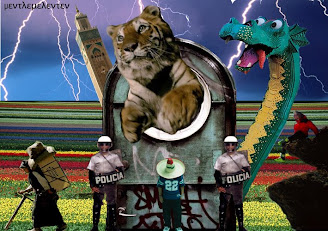Researchers treat PTSD with Ecstasy-assisted psychotherapy

MDMA is Methylenedioxymethampethamine, or Ecstasy used to
treat PTSD sufferers
Researchers used Ecstasy-assisted psychotherapy to treat PTSD sufferers in a study with surprising results the Journal of Psychopharmacology reported today, July 19, 2010.
This "...study is the first completed clinical trial evaluating MDMA as a therapeutic adjunct," according to the Journal of Psychopharmacology.
MDMA, or Ecstasy is a dissociative drug, hallucinogen, as well as a stimulant abused by many teens, and younger adults.
According to the National Institute of Mental Health, (NIMH), PTSD is, "...an anxiety disorder that can develop after exposure to a terrifying event or ordeal in which grave physical harm occurred or was threatened. Traumatic events that may trigger PTSD include violent personal assaults, natural or human-caused disasters, accidents, or military combat."
Treatment for PTSD is often difficult for the patient because he must talk about the trauma that is at the heart of the mental illness. Patients can become overwhelmed, and stuff their feelings, as well as images. Basically they are numbing themselves. When a patient does this, disclosure to the therapist is cut off and the sessions are ineffective.
The research using MDMA, or Ecstasy on subjects with chronic, treatment-resistant posttraumatic stress disorder involved 20 patients. Twelve were give MDMA, and the other 8 unknowingly took a placebo. A placebo is, "a substance having no pharmacological effect but administered as a control in testing experimentally or clinically the efficacy of a biologically active preparation," according to Dictionary.com. In this study, the biologically active substance was MDMA, or Ecstasy.
"The study participants underwent two eight-hour psychotherapy sessions scheduled about a month apart, with 12 patients taking MDMA, and eight taking a placebo. Subjects were also given psychotherapy on a weekly basis before and after each experimental session. An independent psychologist evaluated each patient's symptoms of PTSD prior to and after the sessions," reported U.S. News & World Report.
When the study was completed, about 80 percent of patients taking MDMA, in conjunction with psychotherapy were not found to exhibit the symptoms of PTSD any longer as measured by diagnostic tools. The placebo group had only a 25 percent success rate.
PTSD sufferers often abuse drugs because they are unable to deal with the demons that haunt them. For this reason alone, MDMA might be useful for them as well as those who are resistant to other PTSD medications, and therapy.
However, using Ecstasy under anything other than a controlled setting is still dangerous. And with MDMA, ambient temperature, crowds, and noise contribute to the drugs effects in the body, and you can suffer from severe consequences if taking this medication on your own.
"Part stimulant, ecstasy acts on the brain's hypothalamus. It ramps up heart rate and blood pressure and disrupts the brain's ability to regulate body temperature. A brain unable to cool off an overexerted body on a jam-packed dance floor spells disaster," according to teacher.scholastic.com. Kids have dies abusing this drug.
Of course, more research is needed before anything else. Some animal studies have shown MDMA to be a neurotoxin, a drug that destroys neurons or more typically, brain cells. So don't run out to your nearest Ecstasy dealer for a supply. Chances are you're not getting pure Ecstasy anyway if you do buy it off the streets because it is being cut with all kinds of adulterants.
http://www.examiner.com/substance-abuse-in-detroit/researchers-treat-ptsd-with-ecstasy-assisted-psychotherapy


























